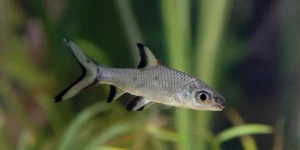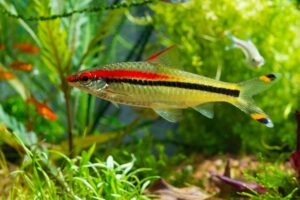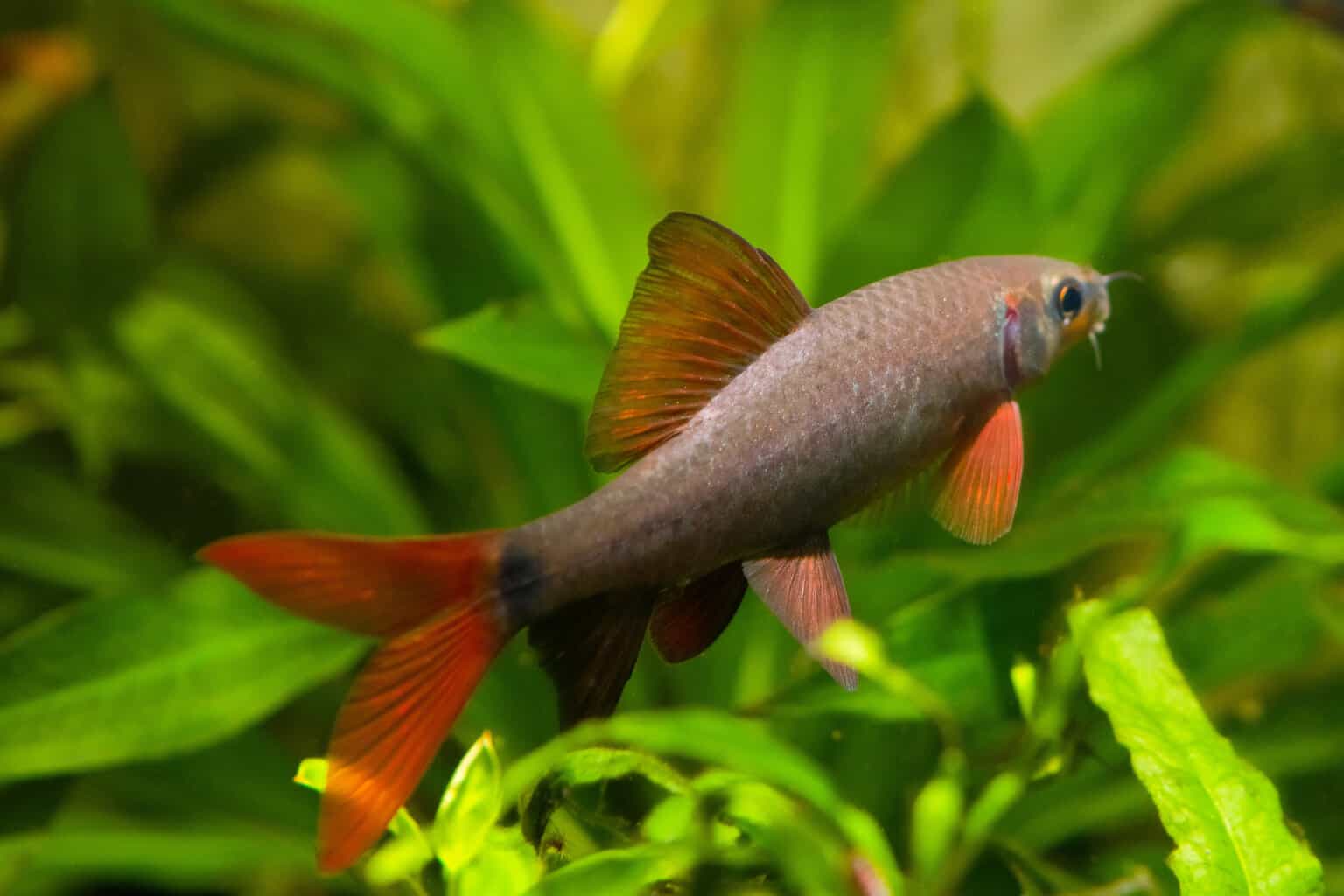Aquarists’ Guide to Freshwater Sharks for Aquariums
What Are Freshwater Sharks?
The freshwater sharks are not real sharks as the name suggest but are fish with similar features of the oceans sharks. They are in several species including the Bala Shark and the Red Tail Shark and they dwell in freshwater systems. Their slim body and built as well as how they swim make them glance unique while being a excellent exhibit to any aquarium. Freshwater sharks possess various patterns of sizes and coloration, and thus, they enhance exotic mood and vivacity at aquatic exhibitions.
Why Freshwater Sharks are Good for Your Aquarium?

Adding new live inhabitants to your aquarium will make your home freshwater sharks which will produce fascinating atmosphere into your home aquarium! Apart from splashing some color these fascinating fish are useful when there is a need for cleaning the tank as they forage for food. Thanks to their high activity and specific behaviour, they create unbelievable interest for any aquarium. Furthermore freshwater sharks are normally hardy fish and can be easily cared for; it is therefore an excellent addition to any aquarists’ tank be it a beginners of experts who want to add variety to their aquatic communities.
Most Predominate Fresh Water Sharks for Home Aquariums
Types of Freshwater Sharks That Should Be Placed in Fish Tanks
If you consider getting into aqua-sharks, you will be pleased to find many different species of freshwater sharks suitable for home aquariums that all have their own unique appeal! The Bala Shark, named and shaped like true sharks, is suitable for any tank because it doesn’t aggressively harm any other fish while the Rainbow Shark is famous for its fast moving and colourful body. Others are the Albino Rainbow Shark and has different striking colors from the body of the fish and the Red Tail Shark which has an attractive color contrast.
Freshwater Sharks Perfect if You are a Novice
Honestly, starting an aquarium with freshwater sharks is not as difficult as you think it can be. Certain species are easy to start with mainly because of their tolerance to the environment and ease in their management. The Iridescent shark, despite it’s name, is a docile fish and adapts well to different watershed, therefore the Bala shark, which is also a social fish can coexist with many other community fish. The Silver Shark thus starts the journey from aquatics from daunting to delightful and gives the newcomers the taste of keeping those fantastic fishes without much complication.
Freshwater Shark: the contrast between big and small shark species.
For pops, freshwater sharks come in large and small sizes; therefore, the type of shark to introduce in the aquarium depends on size and personal choice. Some Iridescent Sharks can become quite big, and thus need more space and better work as large fish that will really stand out and overtake the look of your aquarium space. While larger and more demanding species like the Red Tail Shark or Black Sharkminnow would work well for people who would like a shark look without the requiriments of large tank sizes. In either case, if you are aspiring to be a grand, luxurious fish or a slick, small fish, there is a freshwater shark out there for you.
Preparing the Ideal Aquarium for Freshwater Sharks
A Quarantine Tank: What is it And How to Set up a Freshwater Tank for New Acquired Sharks
Weston’s Freshwater Sharks are fascinating fish to have at home and the journey starts with the proper setup! To get the best environment for these spry creatures, begin with a hardy tank reaching a capacity of at least 55 gallons. You should target to put the best filter type and design that will enable the water to remain clean and full of oxygen, which is very important to the fish. They should be kept at 75-80°F as the water temperature affects their health well-being as it is in the wild. Please do not forget that you should wait a few weeks after setting up your new tank before introducing your freshwater sharks into this system: this lets all the life in the tank get used to each other and the conditions before the arrival of the new residents.
Need To Know: Perfect Tank Size for Freshwater Sharks

Regarding the tank size, the goal should be to select the biggest tank that is possible as the species of freshwater sharks are very active and grow. It is advisable to have at least 55 gallons for species such as Red Tail Shark and larger enthusiasts such as the Iridescent shark require even bigger tanks; 100 gallons or more. When offering enough swimming area, not only do your sharks get to perform the necessary actions and display their typical behavior but also it contributes to the free from stress and aggression interaction. By getting the proper size for the tank you are creating the environment for an magical and healthy aquatic environment that is both beautiful and responsible.
The types of substrate, plants, and decorations you will need for your aquarium start with selecting the right substrate.
Get sucked into the artistry by choosing the best substrate, plants, and adornments for aesthetically orientated freshwater shark-tank! Fine gravel or sand are ideal since it is a natural setup and baby bettas will need a safe and comfortable environment in which to roam. Introduce some types of hardness providing aquatic plants such as Java Fern and Anubias to add a shelter to fish and make them comfortable when they find a shelter. Rocks, pieces of driftwood or caves are used prior to embodying your tank; they are funny shelters and at the same time contribute to the elicitations of your sharks territorial behaviours. If well placed they turn your aquarium into a fascinating fairy tale sea aquarium that everyone , including the sharks ,will be captivated for.
Freshwater sharks habitat and preferred water conditions
The Water Temperature in the Freshwater Sharks Life Habitat
Specifically of importance is the temperature of water, that is why freshwater sharks should be provided with proper conditions. These are tropical fish and they prefer warm water though they will be most comfortable at 75-80°F. A constant environment is crucial, inevitably changes of temperature cause tension to the sharks and results in sickness. Hiring a good heater with an in-built thermostat is important so that the water is within the correct range. Further, using the accurate aquarium thermometer to check temperature on frequent bases helps to provide stability in the environmental conditions similar to the natural habitat, which adds vigor and liveliness of your freshwater sharks.
pH and Hardness Levels for Freshwater Shark Tanks
Freshwater sharks are kept under water conditions that are as close to their natural habitats as is possible. Not only should the pH range of their environment stay at 6.5 to 7.5 as this is ideal and conducive for their overall health. It also helps to mention that its level should not be too low or too high; most fish do best when the water gH is from 5 to 12 dGH. It helps maintain a consistent balance in many aspects and parameters of the fish’s environment and that’s a good way to keep the colors very vivid and the overall health of your shark fish very good. It is actually fun and enriching to meet the right chemical composition that basically makes the aquarium more artistic and lively.
Accurate Water Filtration and Circulation Requirement
Adquate water quality and water movement are critical for freshwater sharks, as filth and low water oxygen level should not be tolerated in their tanks. Developing and installing good quality filtration system plays a role in the cleaning system thus eliminating debris, toxins and wastes within the water system. Filter selected must be appropriate to the tank size and biological demand of the aquarium. Also, formation of tiny water current is very helpful in mimicking the natural water currents which will in turn help in the aeration of water thus being an added advantage as concerns respiratory functions of your sharks. Several aeration stones are used along side with a high-quality aquarium pump that helps in ensuring that water flow and circulation is well accomplished greatly enhancing the chances of a good and vibrant aquarium.
Care and Maintenance Information of Freshwater Shark Tank
Taking Care of Freshwater Sharks with Special Reference to Feeding in an Aquarium
One of the most fun parts of the freshwater shark’s care is feeding since these fishes are rather active during a meal! Make it a point to feed your little athletes with lots of proteins because they are very active and growing. Commercial pellets that are made for carnivorous fish should be given with some live or frozen food such as bloodworms and brine shrimp. Some of them require you to feed them once or twice in a day and in a few minutes they must have finished eating. Their feeding habits may also point to their health and behavior and one can always change their feeding pattern in order to keep them active.
Maintenance Checklist of Freshwater Sharks Tank
It is of paramount importance that you maintain your freshwater shark tank in good condition so that the fishes that are in it can live long healthy lives. Maintenance involves partially changing the water on a weekly basis to remove water nutrients and wastes in a proportion of about 20%. Replace water as necessary; also clean front glass of the aquarium and examine approaching filtration system for changes of filter media to guarantee efficiency. Correcting water chemistry should be done as often as practical since constant testing provides the necessary corrections to keep the water in the right conditions. By doing these consistently, you make sure there are no hitches and if there are they are well managed hence your freshwater sharks are well taken care off and they will give you immense joy.
Measures of Countering Frequently Encountered Disease in Freshwater Sharks
Minimizing diseases in freshwater sharks is a way forward by providing good water quality and a proper diet. Stress is one of the leading causes of illness so giving them a large, clean environment is important as is stable water conditions. Consult your vet about the possibility of isolating newly aquried fish before they are put into your fish tank to avoid spreading possible disease causing germs. Furthermore, any symptoms indicative of possible illness such as, lack of swimming or even eating should not be ignored since this will reduce severe epizootics. It is wise and diligent action that you establish conditions that are suitable for robust and active freshwater sharks.
Tank Mates For Freshwater Sharks
Compatibility of Fish Species with Freshwater Sharks
Selecting the right tank mates for your freshwater sharks will serve to complement the colorful display of your fish tank and aesthetic value of the fish tank. It is advisable to go for those species that are in close to the size of the other species and have friendly dispositions towards them. Good tank mates are barbs, loaches, and sturdy tetras that can co exist with the freshwater sharks. Often both fish species require the same conditions of water parameters and feeding that makes a pair of them perfect companions. They established an active and entertaining aquatic environment this way because the fish choose pleasant companion species and don’t engage in aggressive behavior.
Fish Compatibility Chart: Sharks for Freshwater Aquarium
Thus, successfully implementing fish compatibility in a freshwater shark aquarium means knowledge about the corresponding behavior of potential tank companions. Give preference to species that have maximum tank compatibility, they should not be territorial and can share the water area. There is need to make sure that all the lots we have are combining enough space, adequate cover and other resources which would help in reducing stress and competition. Try and select species that prefer different parts of the tank so that you can get the most out of the available space in the tank. By implementing this guide.
What to Avoid: List of Fishes Compatible with Large Silver Barb Fish That Don’t Get Along with Freshwater Sharks
When choosing your friends for your freshwater sharks, there are some fish which are undesirable and would harm your sharks. Avoid small and delicate food fish which might be seen by your sharks as juveniles or underneath their size class. Guppies, neon tetras, and small danios are, therefore, not good companions for the betta. Also,ramming fish or finippers such as cichlids or large gouramis will incite fights that are stress to your sharks. Awareness of such discrepancies helps one in ensuring that there are no alarm by keeping the aquarium calm.
Behavior and Socialization of Freshwater Shark
Behaviors of Freshwater Shark
These include some of the most interesting behaviors that contribute to the hobby’s appeal of watching sharks! Such species of amphibians are quite noted for their high level of mobility and highly territorial disposition. In a lot of sequences they display investigative nature; they swim and dive around the aquatic territory and get to engage with the terrain. Such behaviors if understood mean that the aquarists can be in a position to understand when the fish may need what in the tank so that they can make changes favorable to the fish to support the behaviors. Observing their interactions.
Being members of the shark group are the freshwater sharks aggressive:
In their natural habitats predator aggression is not as blatant due to the fact that freshwater sharks prefer to be territorial instead. Although they can chase and bite any other fish in an attempt to display authority over them or in an attempt to ward them off from the area they consider their own, theDaemon variety is rather docile when sharing an aquarium with compatible species. There must be enough swimming region and shelter in order to minimize the fighting over territories. Aquarists should also be aware of overcrowding because in this conditions territorial behavior can be intensified.
Can freshwater sharks be kept alongside other fish?
I’m glad to inform that freshwater sharks can actually be put together with other fish in a properly arranged aquarium! The main thing here is to place the appropriate species so that they share the same size, disposition, and preferred climate. Thus, fishtank companion and tank associates of the freshwater shark should include barbs, loaches, and large tetras species to a diverse and populated tank community. It provides enough space and resources in the tank to enable each fish have its own space with few confrontational incidents. Thus, creating the proper balanced environment in the tank, the aquarists provide the interesting and stimulating proactive space for the freshwater sharks and their friends.
Common Probiem Solving In Freshwater Shark Aquariums
Overcoming Anger in Freshwater Sharks
Handling aggression in the FW sharks, however, may at times be quite a challenge, but as you will learn below, it is not impossible to keep peace in your tank. First ask yourself whether the tank is overstocked and if every single fish gets enough space to create its own territory. Consequent to this, the presence of morecover such as plants or rocks reduces anxiety by enabling fish go hide. If aggression continues, it is helpful to change the layout of the tank, so they no longer claim a specific territory as their own, to help with reintegration. Observing the fish interactions, and adapting alterations to the environment diminishes aggressiveness to a large extent.
Solving Tank Sizes Issues for Increasing Sharks
It is however important to note that with time owing to their growth your freshwater sharks would need a bigger space! It thus becomes important to give them enough space within which to swim and roam around in. One basic principle is that a fair size for small inverts should be from 55 gallons and as the invert grows the tank size should be escalated as well. If your current setup is getting small, providing your fishes with a higher tank can help stress and they exhibit natural behaviors. Also note, as your sharks mature, mates may also require more room to stretch their fins in as well. It also assists the keeper in maining space-optimal by periodic readjustment of the tank size for all the aquatic inhabitants.
Problems relating to Water Quality in Shark Aquariums
The health of sharks kept in fish aquariums depends on the adherence to a policy that ensures that the water is as clean as possible. The first step, there should be water changes as often as possible to maintain these parameters are stable and clean the water from toxic substances. Check ammonia, nitrite, and nitrate levels of water often—a frequently used water quality parameters. It is recommended to adapt a high quality filtration system depending on the sizes of your fish tank in order to address the accumulated wastes properly. For Chronic problems solve it by bringing live plants into the aquarium or adding more bio-filtrations media to support bacterial colony. In this way, being proactive on water quality you will guarantee great conditions on your sharks ‘territory’.
Freshwater Sharks and Long Term Care and Lifespan of Freshwater Sharks
How Long Freshwater Sharks Are Likely to Live in Aquaria
Freshwater sharks are relatively long lived, and if cared for adequately, they may live to between 10 and 15 years of age in confined aquatic environments. The continued existence of these interesting animals depends only on creating favorable conditions for their habitation and feeding and meeting their food and social requirements. Living in a well-maintained aquarium and being fed a purposeful diet accompanied with proper choice of tank mates will improve the longevity of the freshwater shark. Remember what we discussed about, disregard and lack of proper care, poor maintenance creates troubles, but careful and dedicated attitude to these valuable fish make their company possible and enjoyable for a long time.
Fact Sheet on How to Keep Your Freshwater Shark in the Best of Health
Freshwater sharks aquarium care goes beyond feedings; there are general tips which accords to their healthy and sound well being. First start with a big aquarium that is mimicked their environment, providing them with lots of caves and open swimming area. Stable levels of the water chemistry, constant temperature regulation and proper sanitizing makes the water healthy for use. Comparison of proteins and other nutrient foods is vital in feeding the growing child, for him/her or her to grow healthy strong and intelligent. Finally, changes in behavior or reduced meal intake may also be earliest symptoms that a shark is sick, if you monitor your sharks’ behavior frequently. Incorporating all these practices means that you create a right environment for a tropical and active freshwater aquarium life for your sharks.
Conclusion: This paper focuses on making sure that there is healthy and thriving freshwater shark tank.
Building up a healthy environment for freshwater sharks is an incredible journey of excitement and fun at the same time. It is suggested that success is realized when biologist learns with respect to the requirements of these rather extraordinary fish. This is the decision of intergroup compatibility to feed and provide water quality, as well as housing and space granted for their growth and development. Responsiveness and constant care are the keys that will keep a hobbyist enjoying all the activities within the aquarium without having jealous fish. The fact is that your efforts are rewarded with happy, healthy freshwater sharks which only add more joy and interest to your aquarium.
Frequently Asked Questions (FAQ)
Are Freshwater Sharks True Sharks?
No, freshwater sharks are not true sharks. While they share a name with their oceanic counterparts, freshwater sharks belong to a different family and exhibit distinct characteristics. They are known for their shark-like appearance, including a torpedo-shaped body and a prominent dorsal fin, which gives them their striking resemblance to marine sharks. However, they are typically part of the Cyprinidae family, differing significantly in behavior and habitat.
Can Freshwater Sharks Jump Out of the Tank?
Yes, freshwater sharks are known to be quite active and might attempt to jump out of their tanks under certain conditions. To prevent this, it’s essential to have a secure lid or hood on your aquarium. Factors like stress, inadequate space, or water quality issues can increase the likelihood of jumping behaviors. Monitoring these aspects of your tank setup can mitigate risks and keep your fish safely contained.
What Is the Best Food for Freshwater Sharks?
Feeding your freshwater sharks a balanced diet enthusiastically tailored to their needs can keep them thriving! High-quality commercial pellets or flakes specifically formulated for their species are a good staple. Supplement these with occasional treats like live or frozen foods such as bloodworms, brine shrimp, or daphnia to add variety and nutritional enrichment. This varied diet ensures they receive the essential nutrients for health and longevity.
Do Freshwater Sharks Need a Special Filtration System?
Absolutely, maintaining excellent water quality demands an efficient filtration system, especially for freshwater sharks that tend to produce more waste. A robust system equipped with mechanical, biological, and chemical filtration components is recommended. The setup should be sufficient to manage the bioload of the tank, ensuring a healthy, clean environment. Regular maintenance of the filtration system is also crucial to its effective operation.

